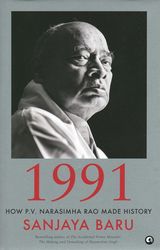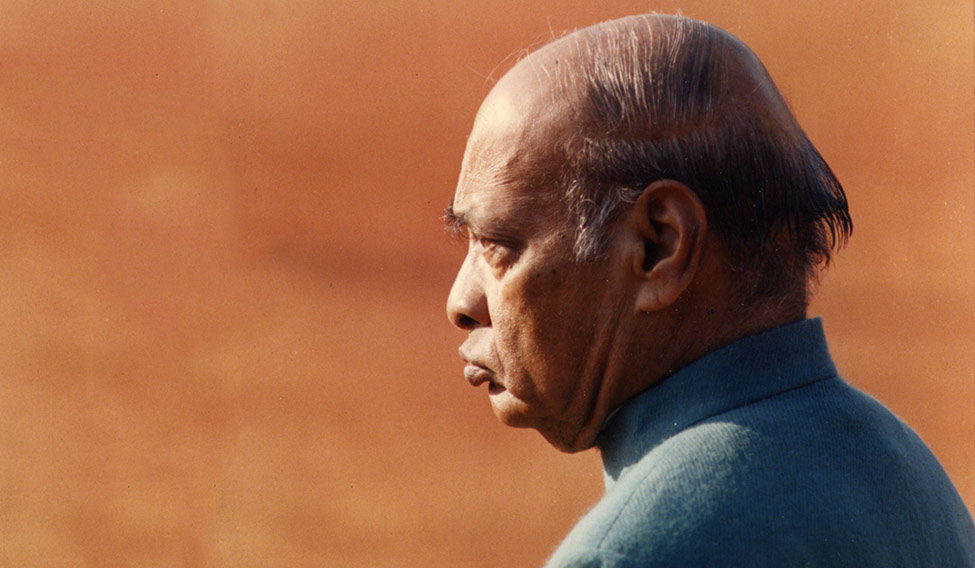Twenty years after he quit office, P.V. Narasimha Rao continues to be an enigma. The man had nothing going for him—no charisma, no leadership quality, no oratory, not even good looks. Though well read, he had not been recognised as an intellectual. Yet, there are many in India who today rate him as the most successful prime minister, given the odds that were against him when he came to power and the odds that he surmounted during his five-year rule.
Today, he is being increasingly recognised not only as the architect of the economic reforms that have transformed India but also of several transformational foreign policy initiatives, including the 'Look East' policy. It was he who helped India break out of the third world mentality and engage with the western world, it was he who broke free of the stranglehold of Arabism and reach out to Israel, yet he maintained good relations with India's old Soviet and Arab allies.
And while being preoccupied with these transformational policies, he was also struggling to survive. He knew that the only way he could survive was by letting his team know who was the leader.
Ace journalist Sanjaya Baru, who served in the Manmohan Singh PMO as media adviser, had also been fairly close to Rao. In 1991: How P.V. Narasimha Rao Made History, Baru gives a fairly close account of Rao's first year in office. Excerpts from the chapter which gives an account of how he managed the ambitious men in his cabinet:
In their recently published accounts, some loyalists of the Nehru-Gandhi family have stated that Manmohan Singh was in fact Rajiv Gandhi's choice and that if Rajiv had become prime minister instead of PV, Singh would still have been the finance minister. One member of Sonia's coterie has gone to the extent of suggesting that Rajiv had even 'cleared I.G. Patel's name' for the finance minister's job!
All this afterthought on the part of the Nehru-Gandhi family loyalists is aimed at claiming family ownership for the personnel and policy choices that PV made in June 1991. Within the year PV got an opportunity to prove to the Nehru-Gandhi coterie that he was the boss. In July 1992, Commerce Minister Chidambaram, one of the ministers Rajiv first drafted into government, offered to quit following allegations of financial impropriety on his part in a matter pertaining to ownership of shares in Fairgrowth Financial Services, a Bangalore-based company charged with involvement in a stock market scam.
Chidambaram believed he had done nothing wrong and was being politically targeted. He publicly offered to resign at a press conference. He had hoped that the prime minister would reject his offer and ask him to continue. This would have vindicated him. Most Congress MPs regarded Chidambaram as uppity and arrogant. That is partly a reflection of his demeanour. Tall and good looking, whether in his starched white veshti and crisp shirt or in jeans and T-shirt, Chidambaram wears his brilliance on his sleeve. He assumed the prime minister would turn his offer down.
PV was, however, very annoyed with Chidambaram. How could a minister go public with a resignation tendered in response to allegations of misconduct and then expect the prime minister to reject it, thereby giving him a clean chit? What did PV owe Chidambaram? Nothing. So the prime minister promptly accepted the minister's resignation. Chidambaram was stunned. More than a message to Chidambaram, it was a message to all his Cabinet colleagues—that they should not take the prime minister for granted.
The lesson was not fully learnt by all. In early January 1993, an Uzbekistan Airways plane had crash-landed in Delhi airport. The airport response was tardy and came in for widespread criticism. Civil Aviation Minister Madhavrao Scindia, another close friend of Rajiv Gandhi's and a maharaja to boot, resigned his post, owning moral responsibility for the mishap and the mess-up. The prime minister promptly accepted his resignation. Scindia was flummoxed! PV was not inclined to accept the resignation but was irritated by the minister's bravado. He had sent word to Scindia asking him to withdraw his resignation. Scindia wanted the prime minister to reject it. That way he could occupy the high moral ground of having offered to quit and yet retain his job as an expression of respect for the prime minister. PV saw through the act, was not willing to grant him the halo, and so accepted the resignation. After these two incidents, every Congressman knew who the boss was.
PV also exercised his prime ministerial authority by the manner in which he appointed his senior officials. If he managed to acquire control of the IAS through Varma and Chandra, he underlined his role in foreign policy by appointing one of India's finest diplomats with a mind of his own, J.N. Dixit, as foreign secretary in December 1991. India's post-Cold War foreign policy as well as PV's outreach to Southeast and East Asia through his 'Look East Policy' and the fresh approach to West Asia defined by a new relationship with Israel were major diplomatic initiatives implemented by Dixit. In the PMO, he had a top-class China hand, Shyam Saran, as his joint secretary and a bright young diplomat, Ramu Damodaran, as his personal secretary. PV also counted on Ronen Sen, Rajiv Gandhi's closest diplomatic aide and someone who was au fait with Rajiv's key initiatives with the US, China, USSR and Pakistan. More importantly, Ronen became PV's go-to man for understanding the fast-paced changes in a crumbling Soviet Union, after the old guard at the Ministry of External Affairs let PV down with their dated assessments. In 1992 PV sent Ronen to Moscow to establish strong links with a new Russia.

Each of PV's appointments strengthened the new government's ability to deal with the crisis at home and a rapidly changing world. I list these appointments to demonstrate that the political leadership of the day had the counsel of a talented and experienced set of administrators, economic policymakers and diplomats to negotiate a particularly difficult year. Astute political management on the part of the prime minister was key to a minority government's ability to manage an economic crisis amidst fundamental geopolitical changes. This aspect of crisis management and reform does not always get the attention it deserves.
Excerpted with permission.
1991: How P.V. Narasimha Rao Made History
By Sanjaya Baru
Published by Aleph Book Company
Price Rs 499; pages 224






